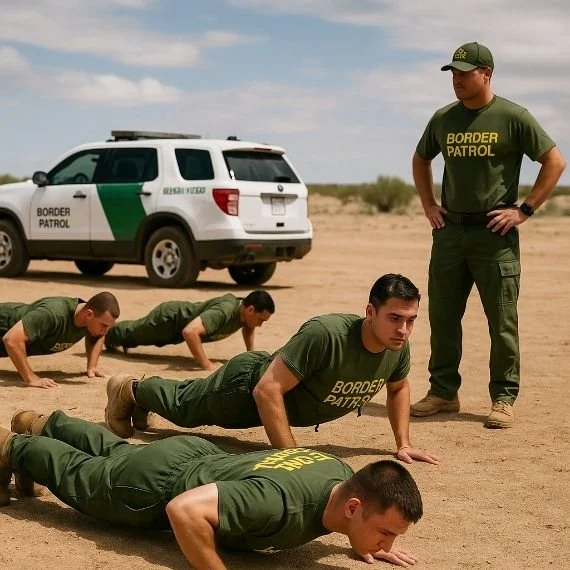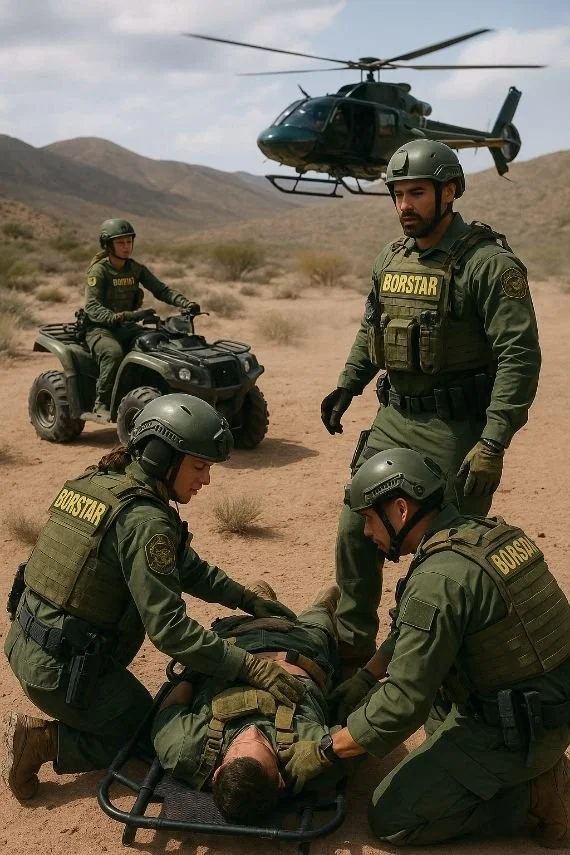What is the Border Patrol Hiring Process?
Among the many career paths within U.S. Customs and Border Protection, the position of a Border Patrol Agent is not just a job, but a profound responsibility. It is a role that is both highly rewarding and demanding, requiring individuals to face considerable responsibilities within the operational scope of the U.S. Border Patrol segment of U.S. Customs and Border Protection. Their focus is on border protection, working tirelessly to secure the national borders and prevent illegal entry by persons as well as the movement of narcotics and contraband into the United States, all in the name of maintaining the safety of the country.
The Border Patrol test prep course recommended here is rated #1 on the independent user review site, ShopperApproved™
Border Patrol Responsibilities and Work Environment
Border Patrol agents are entrusted with the responsibility of securing approximately 8,000 miles of the southwest border, including areas without a port of entry. They regularly patrol remote zones and respond to sensor alerts. Their duties are not limited to these, as they are also expected to handle general tasks and special assignments throughout their shifts. The ability to adapt is crucial, given the diverse terrains and climates they encounter. At times, they must intercept unlawful entries swiftly and under harsh conditions. This dynamic work environment demands diverse capabilities and a readiness for change.
Entry Requirements and Qualifications for Border Patrol Agents
The hiring process begins with candidates submitting an online application, undergoing a structured interview, completing fitness and medical assessments, and having their backgrounds checked, with a polygraph exam administered. Based on education and work experience, applicants may be eligible to enter at the GL-5, GL-7, GL-9, or GL-11 levels. Without law enforcement experience, most candidates will typically start at GL-5 or GL-7 levels. The age requirements has certain exceptions for military service.
Training at the Border Patrol Academy
Training at the U.S. Border Patrol Academy
Selected applicants embark on a journey to Border Patrol Academy in New Mexico, where they undergo a comprehensive training program that spans approximately 117 days. The program is designed to equip them with the necessary skills and knowledge, and it places a strong emphasis on both practical exercises and classroom learning. Participants are expected to meet rigorous physical and mental demands daily during their enrollment. The academy is renowned for its specialized law enforcement education.
Immigration law
Legal instruction
Spanish language immersion
Physical arrest techniques
Firearms training
Offensive and defensive driving
Physical fitness is a cornerstone of the academy's training program. Recruits are put through a series of timed evaluations that are designed to assess their endurance and agility under standardized conditions. They must pass a confidence course within 2.5 minutes and complete a 1.5-mile run. This rigorous physical training prepares them for the demanding physical nature of their job as Border Patrol Agents.
Career Growth and Specialized Units
Border Patrol BORSTAR (search and rescue)
After agents have completed their graduation and field training, they may pursue a wide range of specialties.
K-9 units
Horse patrol
Bike patrol
Off-road vehicle teams
Boat patrol
BORTAC (special operations)
BORSTAR (search and rescue)
GS-5 that has successfully completed work assignments, advances through the ranks to a GS-12, with the opportunity for higher ranks in supervisory position. Promotions are earned by those who demonstrate the expected standards of performance. Eligibility is determined by years of service and regular performance evaluations.
Border Patrol Pay and Benefits
Border Patrol Agent pay is governed by the Border Patrol Pay Reform Act, which includes a 25% law enforcement availability pay to compensate agents for their unique schedule requirements that result from unpredictable operational factors. Agents might work shifts of 10 hours. Additional overtime is provided, and eligible individuals may also receive locality pay and holiday pay. Entry-level agents are offered competitive salaries, and a structured promotion path. Regular pay increases help retain employees.
A career as a Border Patrol Agent is regarded as both demanding and rewarding. Preparation must not be neglected, as it is essential at every stage of the hiring process. Our test prep course is highly ranked by leading independent institutions, guiding those seeking to enter this rewarding profession.
Best Border Patrol Test Prep

